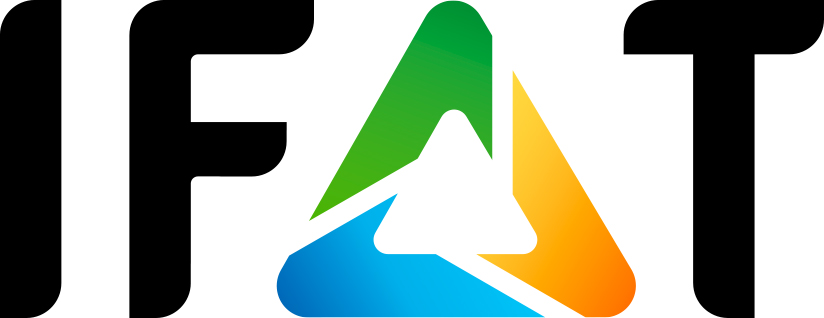Review of IFAT Munich 2024: Five highlights from the event program
One of the traditional strengths of every IFAT Munich is the extensive, high-quality event program consisting of lectures, panel discussions, demonstrations and solution tours. Here are five examples from the five days of the 2024 trade fair.
IFAT Munich 2024 in figures: Around 142,000 visitors met 3,211 exhibitors, whose stands together occupied an area of 300,000 square meters at the Munich exhibition grounds. In addition, the world's leading trade fair for environmental technologies featured a program of 418 individual events between 13 and 17 May. “The lectures, panel discussions, presentations, live demos and solution tours covered virtually every topic that is currently of interest to the industry,” says Stefan Rummel. The Managing Director of the trade fair continues: “This huge range of information, organized together with our partners, is one of the essential quality features of IFAT Munich.” Below are some highlights of one event on each of the five days of the trade fair.
Textile EPR—a cross-industry system for textiles
In the textile industry, the introduction of legal requirements is on the horizon that make manufacturers responsible for the entire life cycle of their products—including recycling after the use phase. On the opening day of IFAT Munich, Jonas Stracke, Head of Circular Economy and Resource Efficiency at the German Textile and Fashion Industry Association, discussed aspects of this Extended Producer Responsibility (EPR) for textiles with two industry experts. Dr. Julia Hobohm, Managing Director of the Joint Battery Take-Back System, contributed her experience from an EPR that has been established for many years. In her opinion, the textile industry has the advantage that there is already a generally known and accepted collection system for used clothing. “But what comes after that is unclear and a corresponding infrastructure needs to be established,” said Hobohm.
Julia Haas, Project Manager Business Development at Interzero Circular Solutions Germany GmbH, represented the recycling industry. She emphasized: “It is important to develop a cross-industry blueprint for a textile EPR before any upcoming legislation—ideally starting today.”


Top-level discussion: Circular economy as a pillar of raw materials policy
On 14 May, Dr. Franziska Brantner, Parliamentary State Secretary at the German Federal Ministry for Economic Affairs and Climate Protection, discussed the links between the circular economy and raw materials policy with leading representatives of key business associations. Under the moderation of Julia-Niharika Sen, known as one of the speakers of the Tagesschau, both national and international aspects were discussed. The topics ranged from the high expectations for the introduction of a digital product passport to sensible pollutant limits in secondary raw materials and the opportunities for German and European environmental technologies on the global markets. For Franziska Brantner, one thing was clear: “A raw materials strategy without a circular economy strategy is pointless!” Her discussion partners were Karl Haeusgen, President of the German Engineering Federation (VDMA), Holger Lösch, Deputy Managing Director of the Federation of German Industries (BDI), Dr. Markus Steilemann, President of the German Chemical Industry Association (VCI) and Dr. Johannes F. Kirchhoff, Chairman of the IFAT Munich Executive Board.
Review and vision of the EU Green Deal
The European elections on June 9, 2024 were an opportunity to reflect on the status and prospects of the European Green Deal at IFAT Munich. On May 15, Aurel Ciobanu-Dordea, Director for Circular Economy at the EU, Czech Environment Minister Petr Hladík and Manfred Weber, MEP and Group Chairman of the European People's Party, discussed this topic. The experts agreed: now that the legal requirements are in place, an economically viable implementation must urgently follow. “We must make a deal out of the Green Deal,” Weber summed it up. It is also important that the rest of the world follows the European example.
In addition to the Green Deal, the panel discussed other current, economically and ecologically relevant EU initiatives such as the “Critical Raw Materials Act” and the “Right to Repair”.


Day of resilient municipalities
The Thursday of the trade fair was, among other things, the Day of Resilient Municipalities - organized by the German Technical and Scientific Association for Gas and Water (DVGW), the German Association for Water, Wastewater and Waste (DWA) and the Association of Municipal Enterprises (VKU) in cooperation with the leading municipal associations. The theme day started with a joint opening panel. Its keynotes and keynote speeches provided a broad spectrum of specialist messages. For example, Bernd Düsterbeck from the German Association of Towns and Municipalities calculated that climate-related damage in Germany had cost at least seven billion euros since 2000.
In contrast, local authorities have invested an average of one billion euros a year in climate adaptation in recent years. Thomas Abel from the VKU is certain that additional costs will be incurred by water supply and wastewater disposal companies for a future-proof and resilient water management system.
This is one of the reasons why he believes that charges will have to rise in the future.
According to Dr. Miriam Haritz from the Federal Environment Ministry, the federal government offers various support services—for example through the “Natural Climate Protection in Municipalities” funding guideline published in February 2024 or the Climate Adaptation Act, which has since come into force on 1 July 2024.
An interdisciplinary approach is essential for water-sensitive urban development, which, according to Ekkehard Pfeiffer from the DWA, is still difficult to implement in the existing municipal administrative structures.
In his presentation, Peter Frenz from the DVGW looked at the tasks and problems of risk management and the protection of critical infrastructure, especially for smaller water supply companies. One of his statements: “In order to counter risks effectively, risk management must be carried out along the entire value chain in accordance with legal requirements in future—and not just in sub-areas such as cyber security.”
The future of living—a look beyond the environmental technology horizon
With presentations by visionary Oxford professor Ian Goldin and international star architect Daniel Libeskind, IFAT Munich 2024 provided additional perspectives on our future living environment on the last day of the trade fair—also against the backdrop of climate change.
Prof. Goldin, thought leader on the topics of globalization and development, emphasized: “Cities are the most efficient places in the world, much more efficient than rural regions. The ecological solution for the world is to make cities even more efficient where they are!”


Daniel Libeskind introduced his design concepts by presenting some of his world-famous projects, such as the One World Trade Center in New York and the Jewish Museum in Berlin. These include structural densification in favor of a green, liveable environment, the creation of attractive, affordable living space and the promotion of interpersonal contact and a sense of community.
